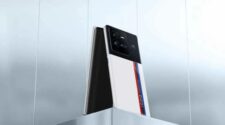
Reuters has posted an interesting piece giving details about Foxconn’s Longhua facility, which, according to the descriptions sounds like a self contained, and self sustainable manufacturing fortress/factory.
“The massive manufacturing complex in the South China city of Longhua resembles an industrial fortress. To enter the facility, workers swipe security cards at the gate. Guards check the occupants of each vehicle with fingerprint recognition scanners.
Container trucks and fork lifts rumble nonstop across the sprawling compound, serving a grid of factories that churn out electronics goods for top global brands around the clock.
Inside the walled city — one of several compounds run by Foxconn International, a major supplier for Apple Inc — employees are provided with most of their daily needs. There are dormitories, canteens, recreation facilities, even banks, post offices and bakeries.
The rank-and-file within the compound have little reason to venture outside. That reduces the likelihood of leaks, which in turn lessens the risk of incurring the wrath of Apple and its chief executive, Steve Jobs, whose product launches have turned into long-running, tightly controlled media spectacles.
Many of Apple’s finished gadgets, from iPods to iPads, are assembled at industrial compounds like the one in Longhua. And when it comes to guarding Apple’s secrets, Foxconn, a unit of Taiwan’s Hon Hai Precision Industry, and other suppliers throughout the region leave little to chance.
“Security is tight everywhere inside the factories,” said a uniformed worker outside the Foxconn factory in Longhua, about an hour from Hong Kong. “They use metal detectors and search us. If you have any metal objects on you when you leave, they just call the police,” he said.
Hon Hai spokesman Edmund Ding declined to comment for this article, as did Apple.
But industry sources in China and elsewhere in Southeast Asia say that Apple goes to what one person in the business termed “extreme lengths” to protect even the smallest details of its new products under development.
Gizchina News of the week
Many of the Cupertino, California-based company’s tactics read like something from a spy novel: information is assiduously guarded and handed out only on a need-to-know basis; employees suspected of leaks may be investigated by the contractor; and the company makes it clear that it will not hesitate to sue if secrets are spilled.
On occasion, Apple will give contract manufacturers different products, just to try them out. That way, the source of any leaks becomes immediately obvious, people familiar with the supply chain said.
And unlike other electronics makers, some of whom prefer the convenience of one-stop shopping, Apple doesn’t rely on a single firm to supply everything for a product. The industry sources say the company will often minutely divvy up projects.
“This ensures that the only people who have all the secrets to any Apple product is Apple itself,” said a senior official at a subsidiary of Hon Hai Precision Industry. “Other tech companies will also look for their own sources of components to compare, but none of them do as many things in-house as Apple does.”
The upshot is that even the people who man the assembly lines have no idea what the finished product will look like.
“The typical production line worker will not see the product until the very last minute when actual production takes place,” said an official at one supplier. “It’s all concentrated in the hands of a few product development teams.” The discretion that Apple demands from its suppliers is merely an extension of the way the company operates at its own corporate headquarters in Cupertino, former employees say.
Apple’s obsession with secrecy is the stuff of legend in Silicon Valley. Over the years, it has fired executives over leaks and sued bloggers to stop trade secrets from being exposed.
A tight-lipped ethos permeates working life, particularly in the run-up to the launch of a new device. Projects are siloed in carefully controlled work groups, rooms are guarded by strict key card access, and many have no firm idea about what even their colleagues in the same office are working on.
One former employee, who worked in the marketing department at the time of the iPhone launch, said workers understand that secrecy is part of Apple’s mystique, and the silence is self-enforced at the most basic level.
“I didn’t even talk about it with my wife,” he said. “It’s a culture of silence and it’s just accepted. You get used to not talking about your work, it becomes normal because everybody is doing the same thing.”
Read the full article over on the Reuters.





1 Comment